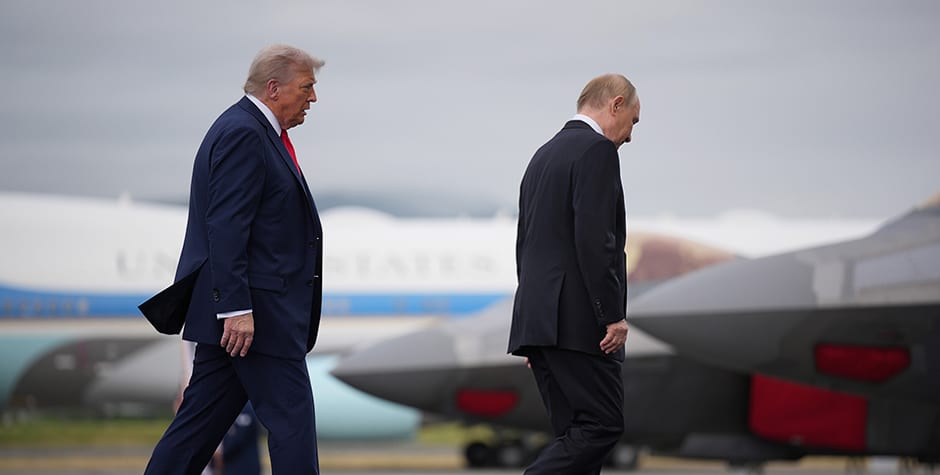President Trump Has the Momentum To Stop Putin’s War
Listen tothis article
This week, Vladimir Putin attacked a kindergarten in Kharkiv, Ukraine, killing at least one person, wounding six, and traumatizing scores of little children in the process.
Are these the actions of a man who wants peace – or a monster who is deliberately targeting civilians in order to bully another country into submission?
I think we all know the answer to that question.
In response to President Trump’s valiant efforts to bring the two sides to the negotiating table, Putin has only increased the intensity of his attacks on civilian and military targets. President Trump and our European allies have proposed a ceasefire freezing the conflict at the current lines of contact as a starting position for renewed negotiations, and President Zelensky has once again shown himself willing to give this a chance. But given his current posture, the likelihood of Putin accepting this offer appears remote.
The fact is, autocrats like Putin only respond to strength. There are clear parallels here with the recent ceasefire in Gaza: Like Hamas, Putin will only stop his brutal war if the costs of continuing are too high to bear. Increasing pressure on the aggressor is the only way to secure an outcome that restores Ukraine’s sovereignty, safeguards European security, and deters bad actors from future belligerence.
Thanks to President Trump’s judicious application of American power, the U.S. has made great strides in rebuilding the deterrence lost under Joe Biden’s presidency. The bold decision to join Israel in the 12 Day War to destroy Iran’s nuclear program sent a clear message to autocrats around the world, and laid the groundwork for building the coalition needed to advance the President’s Gaza peace plan. The President should leverage this momentum to increase pressure on Putin to an uncomfortable degree.
Add your name to the petition: Restore America’s National Security.
The most important way to do this is by supplying Ukraine with the materiel it needs to increase its battlefield advantage by striking deep into Russian territory. The decision to lift a key restriction on Ukraine’s use of some of the long-range missiles supplied by Western allies is welcome news, as is the new round of sanctions targeting Russia’s energy sector. The days of doling out concessions to Ukraine in the piecemeal fashion favored by the Biden Administration must come to an end, or Putin will have no incentive to change his behavior.
It’s also critical that we base our calculations on the facts on the ground. Despite what some would have you believe, Vladimir Putin is not winning this war. He has demanded that Ukraine hand over the entirety of the highly strategic Donbas region, which he has been unable to conquer himself. Nearly 1 million Russian soldiers have been killed or seriously wounded in the course of this war, and they have still not been able to achieve their objectives on the battlefield. Appeasing Putin not only goes against our own strategic interests, but it also fundamentally misunderstands the extent of Russia’s failure and its many weaknesses.
I’ve said this many times before, but it bears repeating: It is important for American interests that Ukraine win this war. Letting Russia prevail would be a disaster not just for Ukraine or for Europe, but for global security. It would broadcast our weakness to adversaries by signaling that sovereign territory can be seized without consequences. It would give Putin the time and staging ground he needs to resume his attempted conquest of Ukraine. It would cement the security threat to the European continent – shifting resources away from other challenges and raising the likelihood of Russian incursions into vulnerable countries on the NATO frontier. And it would throw a lifeline to an authoritarian axis that is currently on the back foot thanks to America and Israel’s efforts to weaken Iran.
As he demonstrated with Iran and Hamas, President Trump knows when it’s time to say enough is enough. That willingness is what enabled last week’s diplomatic breakthrough and has opened up the possibility of advancing peace and prosperity in the Middle East. It’s time to cement those gains by taking a firm line against the Kremlin.
